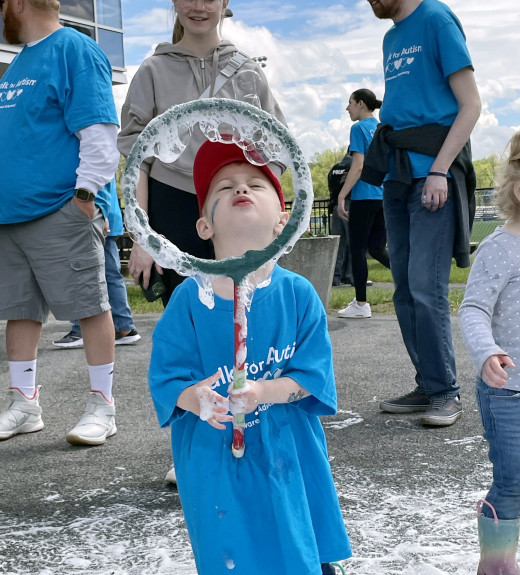- Giving
- Legacy Society


A Lasting Impact
Legacy gifts allow long-term prosperity for Kelberman in our community as we lead autism support and services through all stages of life.
We understand that a planned gift is well thought out and reflects one’s personal values, and we are happy to work with each individual and family on establishing preferences so that your gift reflects you.
Ways You Can Make a Planned Gift
What is a Planned Gift?
A planned gift is a donation that is written into a financial or estate plan. The Legacy Society is a special group of people who have committed to the needs of our community beyond their lifetime. They support our vision and truly care about the future and are dedicated to the lives of children, adults, and families with autism. These gifts allow long-term prosperity for our agency so we can continue to provide autism support and services well into the future.
Legacy gifts may or may not have tax liabilities associated. Contact your tax advisor for further details.
A bequest is the act of naming a dollar amount, or property, that you wish to leave to a specific recipient or organization. If you choose to leave a bequest in your will to Kelberman, you can disclose that gift in advance and become part of the Legacy Society now.
By naming an organization as a beneficiary in a life insurance policy, annuity, or qualified retirement plan, you can bypass the probate process to expedite the gift process, as the gift would not have to be processed through your Will in Surrogate Court.
Gifting an insurance policy to an organization is something you can do today and receive a tax deduction for doing so! Life insurance proceeds are not subject to income tax, so gifting a policy you no longer need to Kelberman now can provide you with current tax savings while funding autism programs in the future.
In a charitable remainder trust, assets are placed into the trust that pay a noncharitable beneficiary income for a set period of time. Once that period ends, the remainder of the estate is transferred to one or more charitable beneficiaries. These trusts are irrevocable, meaning they cannot be changed without the beneficiary’s permission. Charitable remainder trusts offer significant tax savings as they are designed to reduce the taxable income of the individual trustor.
A charitable lead trust is set up to benefit a charity (unlike a charitable remainder that first benefits an individual). The charity receives income from the trust for a set period of time. After the end of the designated time period, the remaining assets are passed back to the donor or the donor’s beneficiary. If you are currently making regular gifts to Kelberman, a charitable lead trust could be a more efficient way to make that gift!
Donor-advised funds offer significant tax benefits and can allow for donations using non-cash assets, like stocks, mutual funds, or bonds. A donor-advised fund is maintained and operated by a sponsoring charitable organization — in other words, it’s like a charitable investment account. The funds in that investment account go to the charity of your choice, and that organization has control over the funds. However, the donor retains advisory privileges with respect to the distribution of funds and investment of assets in the account.
Please Contact Us to Get Started

Carinci
At Kelberman, we work together with our community to provide autism support and services for children, adults and their families. We wouldn’t be able to continue our mission and vision without your generosity.

